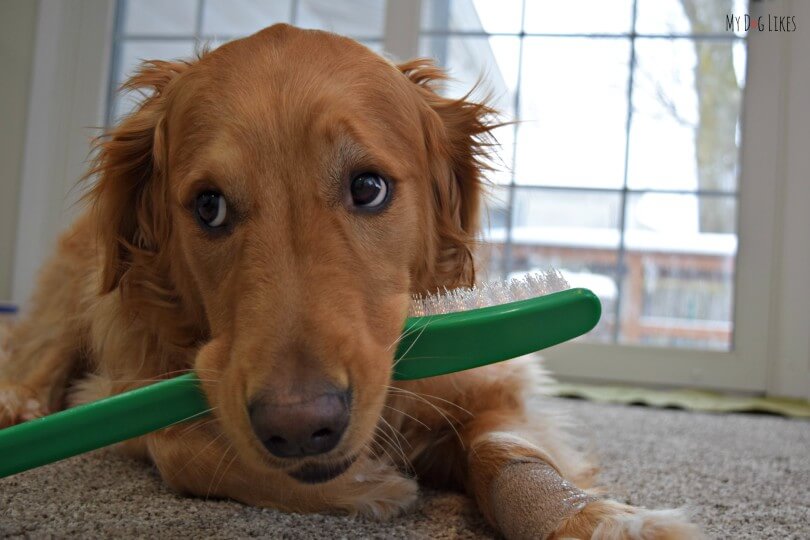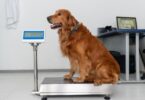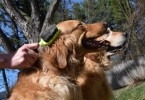Your dog’s oral health is a vital aspect of its overall well-being. Just like humans, dogs require regular dental care to prevent issues like bad breath, gum disease, and tooth decay. Unfortunately, many pet owners underestimate the importance of canine dental hygiene, leaving their furry friends vulnerable to serious health complications.
Lack of proper dental care can lead to painful infections, tooth loss, and even systemic health problems like heart, liver, and kidney disease, which occur when bacteria from the mouth enter the bloodstream.
This ultimate guide to dog dental care provides actionable tips to ensure your dog’s teeth stay clean and healthy for years to come.
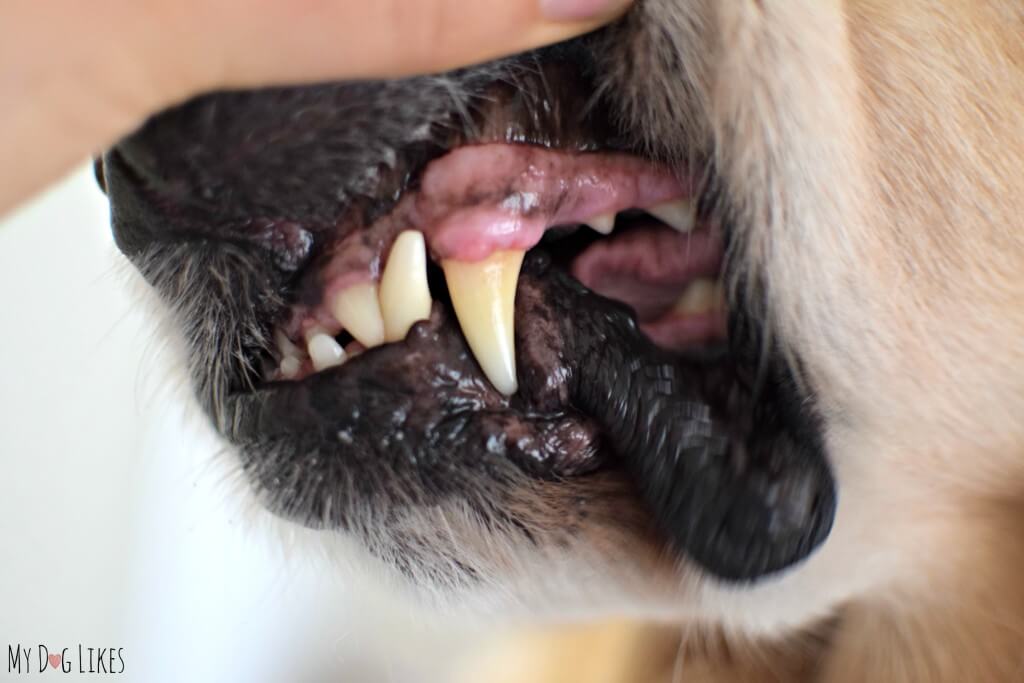
Why Does Canine Dental Health Matter?
Canine dental care is often overlooked but is crucial for your dog’s health, comfort, and quality of life. Here’s why it matters:
- Prevents Discomfort and Pain: Oral health problems, such as gingivitis and periodontal disease, can cause significant discomfort, leading to difficulty eating, pawing at the mouth, and even changes in behavior.
- Supports Proper Digestion: Healthy teeth and gums allow your dog to chew food effectively, aiding in proper digestion and nutrient absorption.
- Reduces Risk of Systemic Infections: Poor dental hygiene allows bacteria to build up and enter the bloodstream, leading to conditions such as endocarditis (heart inflammation) or kidney disease.
- Improves Longevity and Quality of Life: Proactive dental care reduces the risk of severe health problems, ensuring your pet lives a healthier and happier life.
Signs Your Dog Needs Canine Dental Care
Identifying early signs of canine dental care issues will help prevent your dog from having to endure painful and costly treatments at the vet.
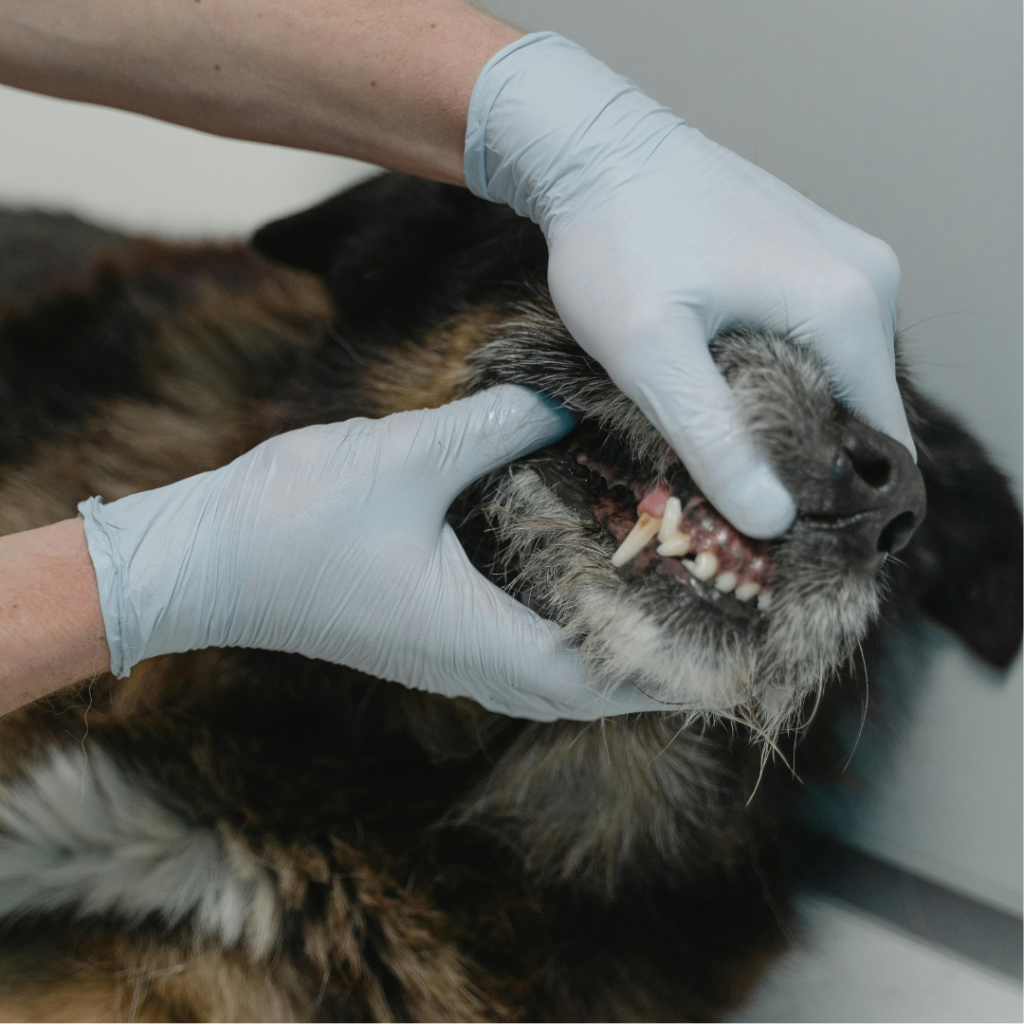
Here are signs your dog needs dental attention:
- Bad Breath: Persistent foul odor often indicates bacterial buildup or an infection.
- Red or Bleeding Gums: This is a common sign of gingivitis or periodontal disease.
- Trouble Eating: If your dog avoids eating hard food or drops food frequently, dental pain might be the cause.
- Loose or Missing Teeth: Advanced dental disease can weaken the gums and jawbone, leading to tooth loss.
- Excessive Drooling: Excessive saliva, sometimes tinged with blood, may indicate oral discomfort or infection.
- Swelling Near the Face or Jaw: Facial swelling could be a sign of an abscess or a more advanced infection requiring urgent care.
- Pawing at the Mouth: Dogs in dental pain often paw at their mouths or faces as a sign of discomfort.
If you notice any of these symptoms, consult your veterinarian promptly to prevent the issue from worsening.
The Basics Of Dog Dental Care
Here are canine dental care tips you can try to ensure good oral health for your dog.
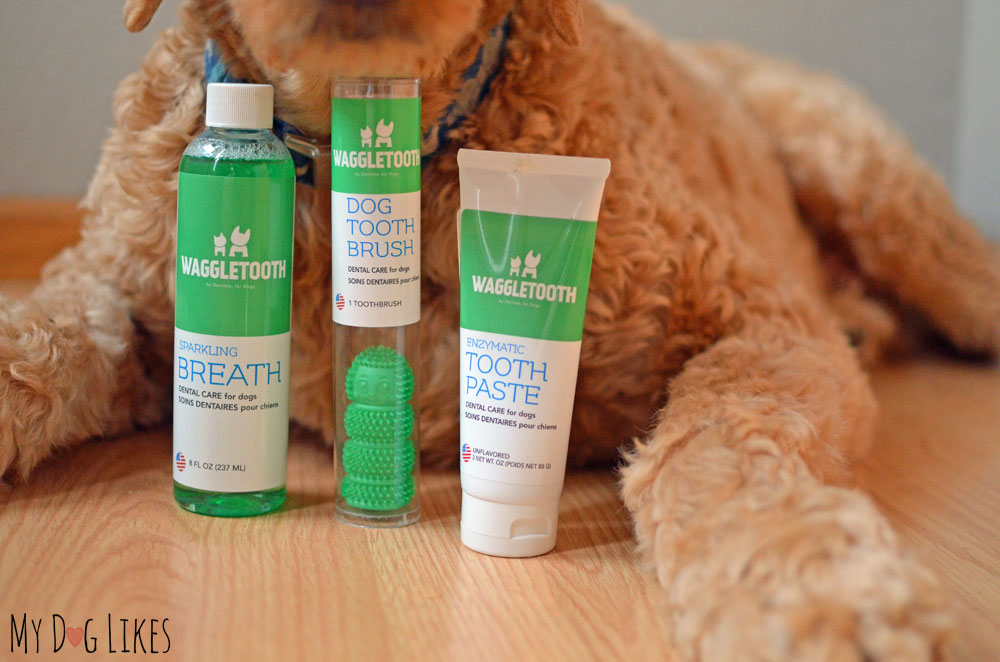
Brushing
Brushing your dog’s teeth is one of the best ways to prevent the development of plaque and tartar. For the best canine dental care routine, try to brush your dog’s teeth daily or three times a week.
- Use a toothbrush for dogs and pet-friendly toothpaste. Never use human toothpaste, as it often contains xylitol and other ingredients, which are toxic to dogs.
- Allow your dog to become accustomed to the toothbrush and toothpaste. Let them sniff and even taste it.
- Clean each tooth in tiny little circles with a brush.
- Rewarding with praise or even a treat afterward will elicit a positive response.
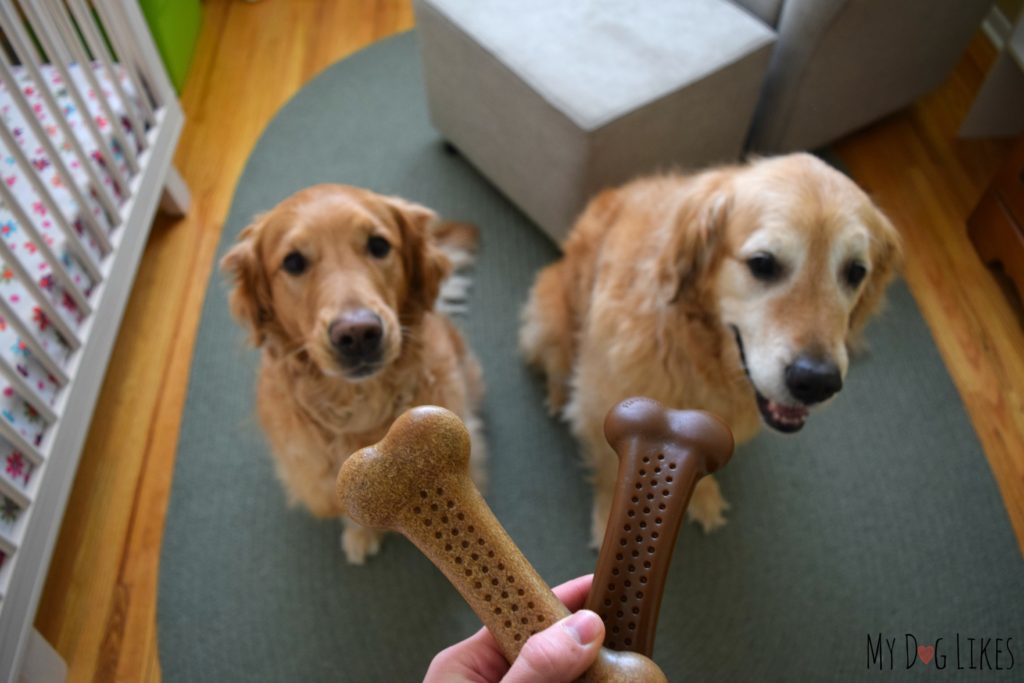
Dental Chews And Toys
Dental chews are meant to remove plaque and tartar while serving the natural urge of chewing your dog possesses.
- Look for products bearing the Veterinary Oral Health Council (VOHC) seal.
- Some toys can even aid in oral health through the massaging of gums and reduction of tartar.
- Make sure the toys are durable enough and of a size that is right for your dog’s size and his chewing habit.
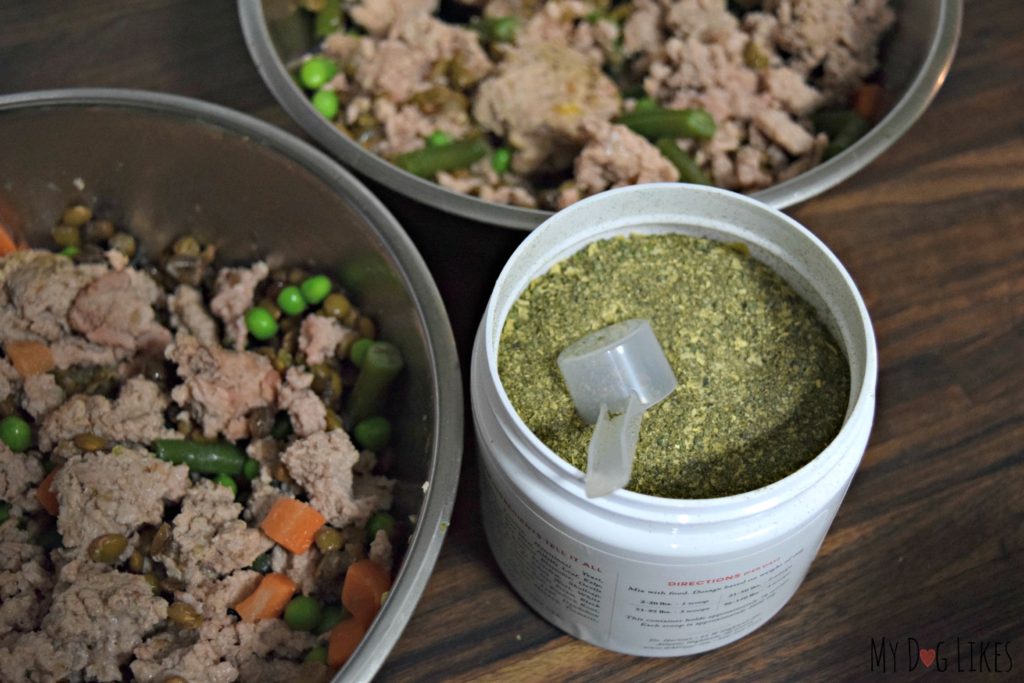
Balanced Diet
A balanced diet is another way in which your dog can achieve good oral health in the long term, naturally.
- Do not feed your dog sugary candies, as this can lead to dental cavities and deteriorate their health.
- Raw vegetables such as carrots or celery can be incorporated into your canine dental care routine as a treat to clean the teeth naturally.
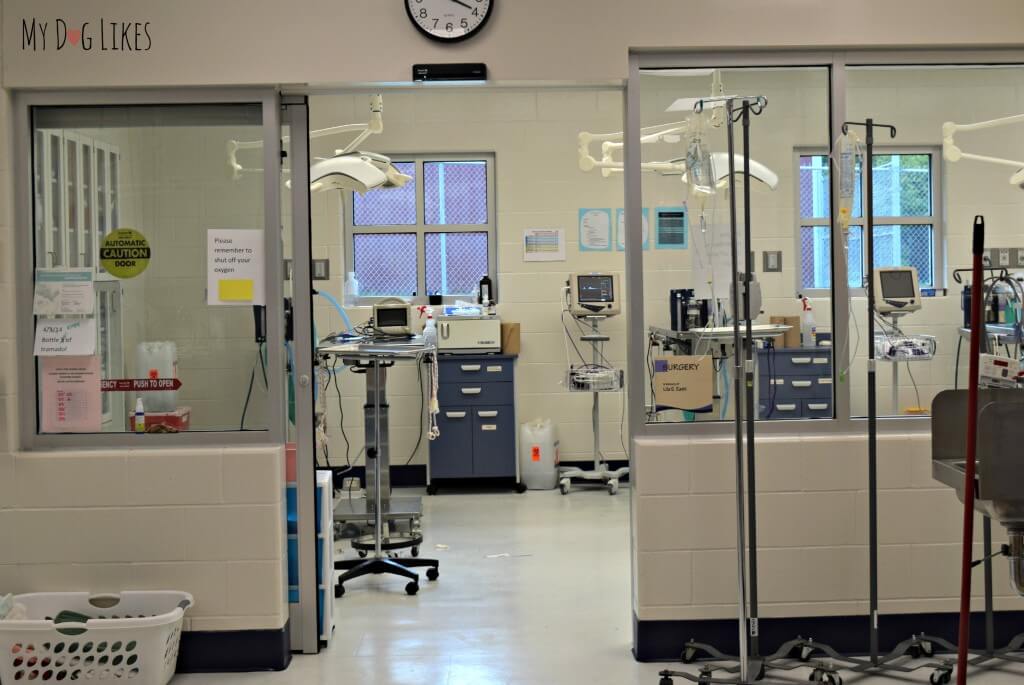
Regular Vet Checkups
Routine veterinary exams are the best way to catch dental problems early. This partnership ensures comprehensive canine dental care and prevention.
- Most vets include an oral exam as part of your dog’s annual checkup. They may recommend professional cleaning if necessary.
- Vets can also guide you on maintaining your dog’s oral health at home and suggest specific products that suit your pet’s needs.

Professional Dental Cleaning
Sometimes, professional cleanings are required to remove tartar that has become hardened and cannot be addressed through brushing.
- This canine dental care procedure usually involves anesthesia so that your dog is comfortable and does not move during the cleaning.
- In a professional cleaning, the veterinarian will check the mouth of your dog for infection, abscesses, or other issues that need treatment. Hence, catching anything you missed during your home check-ups.
- Most dogs benefit from professional cleanings once a year, but frequency may vary depending on your dog’s breed, age, and overall dental health.
Professional cleanings are an investment in your dog’s health and can prevent costly procedures in the future.
Conclusion
Maintaining your dog’s dental health requires a proactive approach both at home and with the help of your veterinarian. By incorporating regular brushing, providing dental chews and a balanced diet, and scheduling routine vet checkups, you can prevent common dental issues and ensure a lifetime of healthy teeth and gums.
Remember, oral health is more than just a bright smile—it directly impacts your dog’s overall health and longevity. Investing in canine dental care today means a happier, healthier tomorrow for your furry companion.

